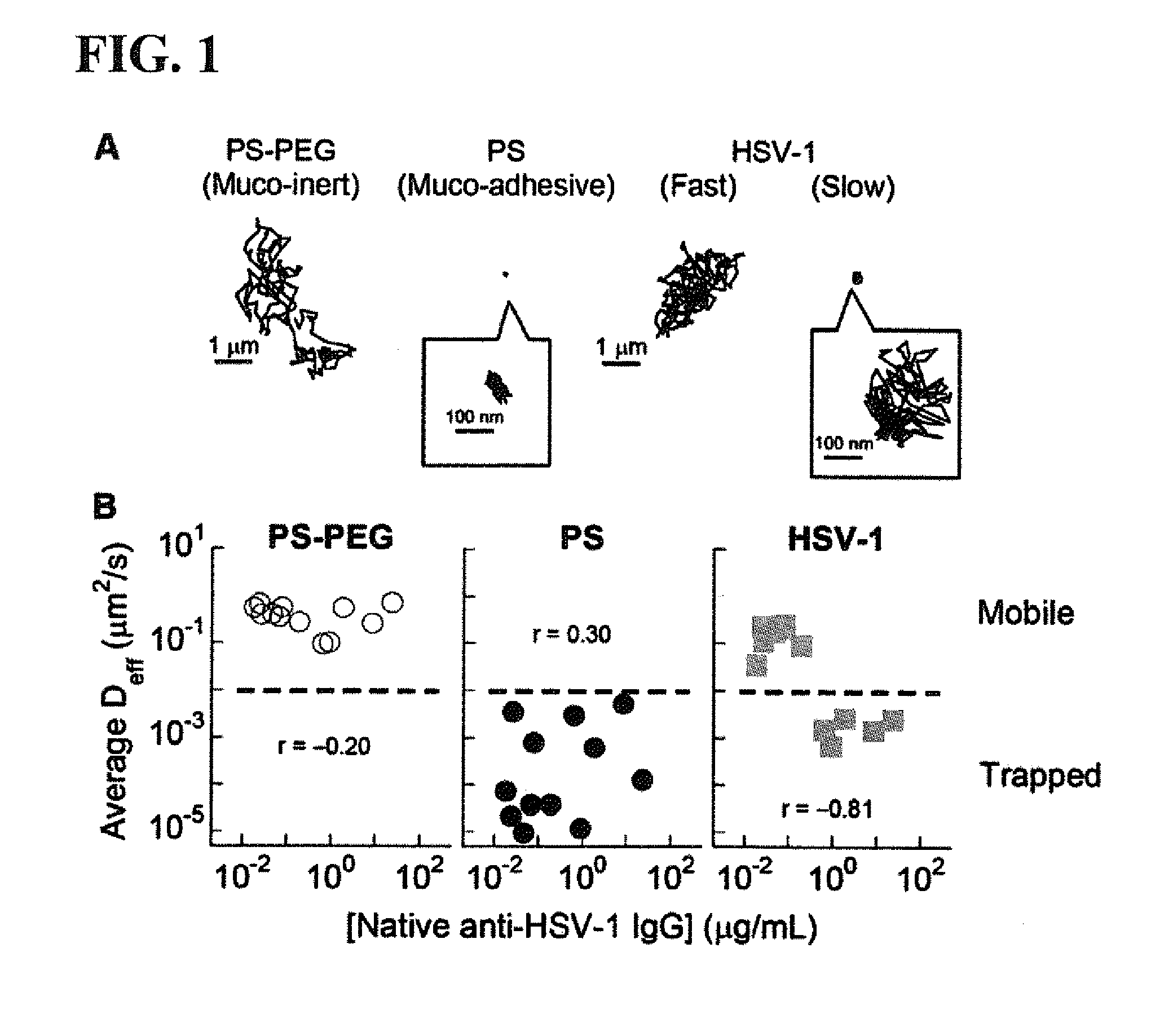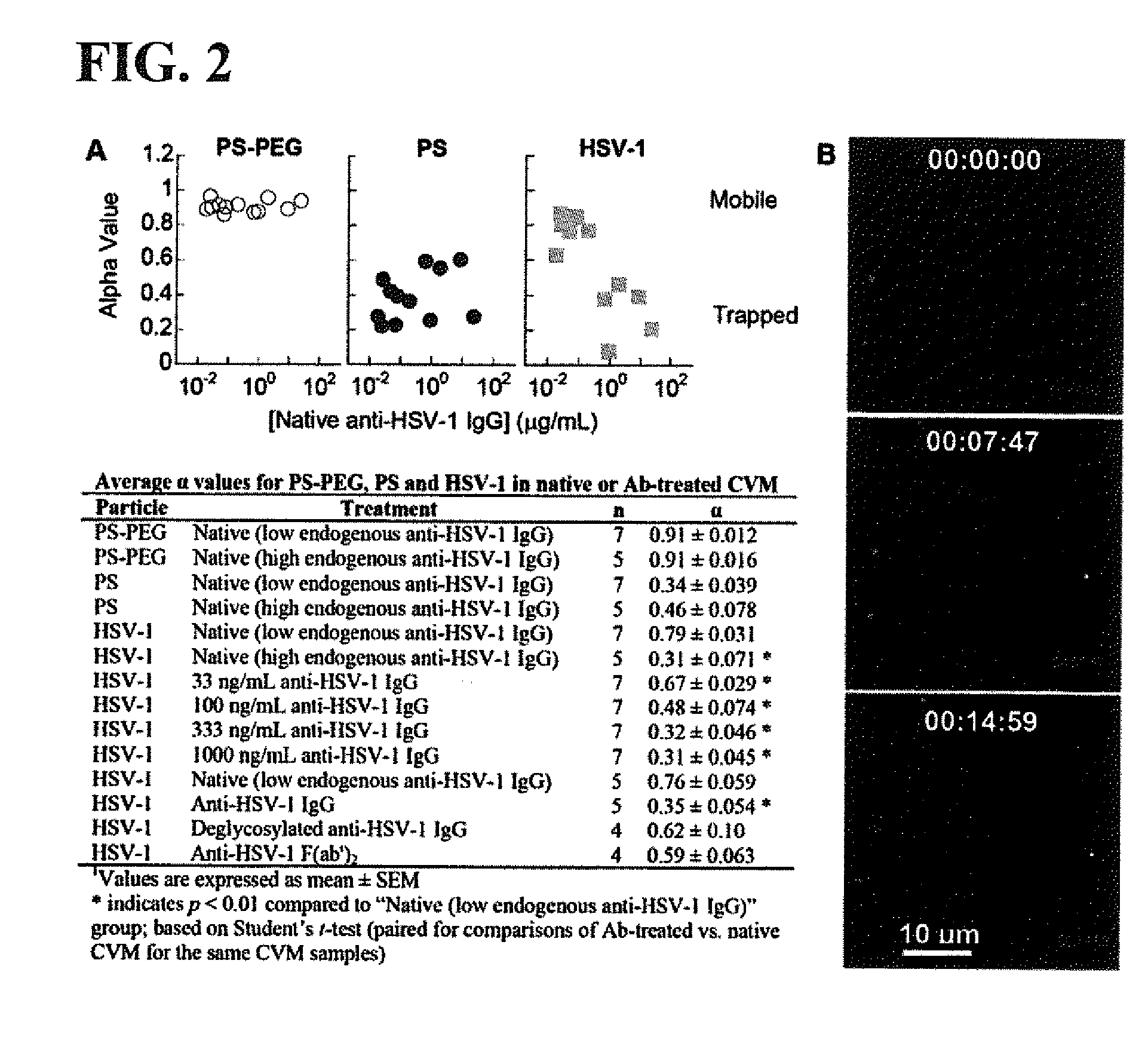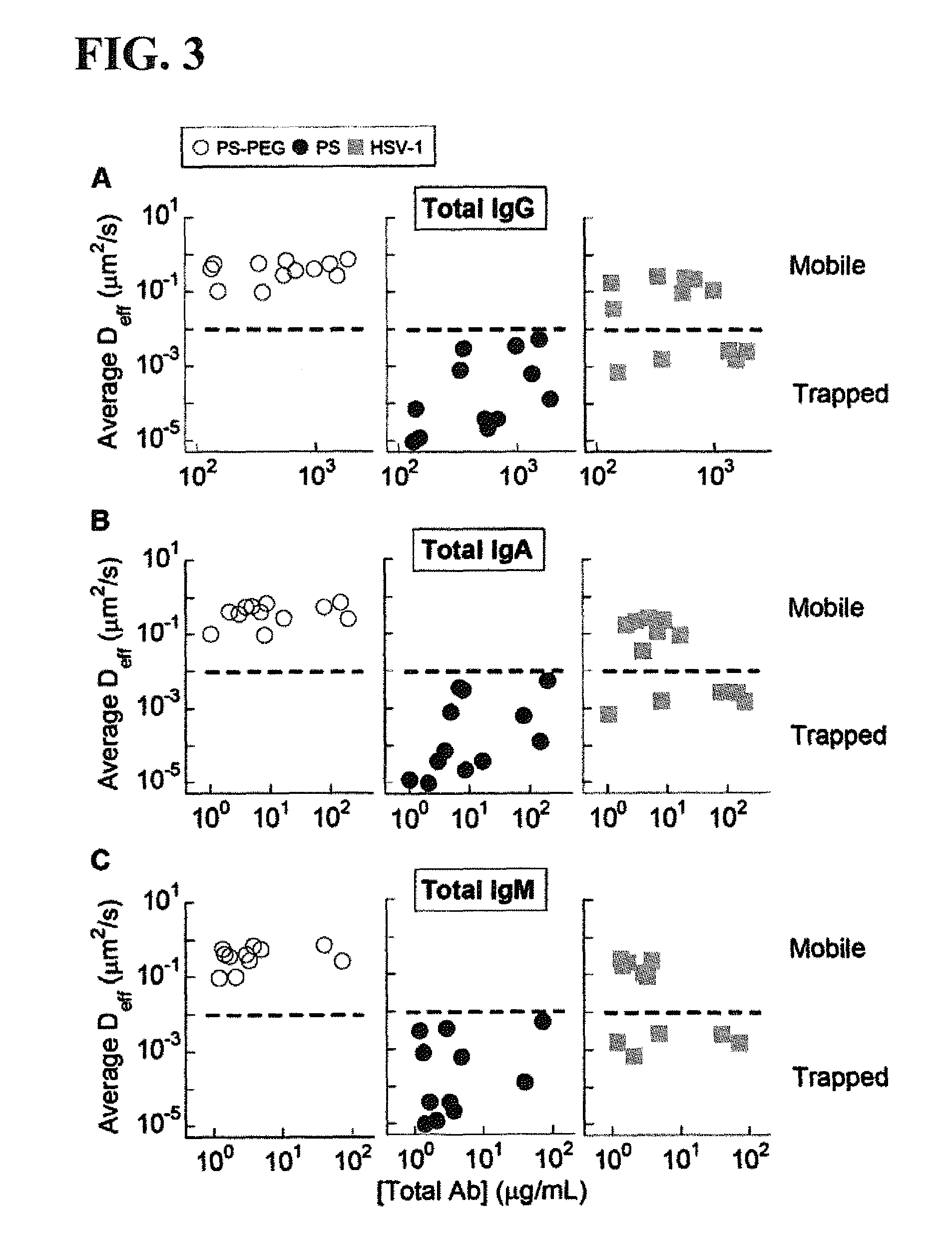Compositions and methods for inhibiting pathogen infection
- Summary
- Abstract
- Description
- Claims
- Application Information
AI Technical Summary
Benefits of technology
Problems solved by technology
Method used
Image
Examples
example 1
Materials and Methods
[0150]Culture and Purification of Fluorescent HSV-1:
[0151]The HSV-1 mutant 166v (Elliott et al., J. Virol. 73:4110 (1999)), encoding a VP22-Green Fluorescent Protein (GFP) tegument protein packaged into HSV-1 at relatively high copy numbers (Heine et al., J. Virol. 14:640 (1974)), was kindly provided by Richard Courtney and used in all microscopy and ELISA studies, besides those for in vivo experiments. The addition of GFP to the VP22 protein appears to have no deleterious effects on viral replication (Elliott et al., J. Virol. 73:4110 (1999)), and the fluorescence of 166v was consistently more intense than that of HSV-1 mutants encoding other GFP fusion proteins. 166v was expanded at an MOI of 3 on confluent monolayers of HaCat cells maintained in DMEM (Life Technologies, Grand Island, N.Y.) supplemented with 5% FBS, 1× L-glutamine and 1× Penicillin / Streptomycin. Culture medium was collected 16-18 hr post-infection and twice centrifuged at 1000×g for 5 min to r...
example 2
Trapping of Salmonella typhimurium in Gastrointestinal Mucus
[0179]Fe-mediated trapping of pathogens in mucus, which directly blocks infections at the portals of entry, may represent an exceptionally potent mechanism by which the immune system can rapidly adapt and reinforce multiple mucosal surfaces against diverse and rapidly evolving pathogens. A microscopy setup was developed that enables measuring bacterial mobility in real time directly in mucus overlaying intestinal epithelial tissue excised from mice (FIG. 10A). It was found that Salmonella typhimurium can readily penetrate undiluted mucus secretions coating the mouse gastrointestinal tract (duodenum, jejunum and ileum), but was effectively immobilized by topically applied anti-LPS and anti-flagella IgG (FIG. 10B). This immobilization occurred without inhibiting the flagella beating apparatus (Ab-coated Salmonella remained highly mobile in buffer) and without causing aggregation (i.e., independent of the classical, aggregatio...
example 3
Role of N-Glycans on IgG-Mucin Interactions
[0180]To further evaluate the role of N-glycans on IgG-mucin interactions, a number of anti-gD antibodies (“HSV8”) with distinct glycosylation patterns were tested in the CVM assay of Example 1. Antibodies with distinct glycosylation profiles were produced in Nicotiana benthamiana plants using a viral-based transient expression system (magnICON). Transgenic Nicotiana benthamiana, in which plant-specific N-glycans (with core α1,3 fucose and β1,2 xylose) are reduced by RNAi inhibition of plant-specific glycosyltransferases and specific glycosyltransferases were over-expressed (e.g., β1,4 galactosyltransferase, see www.jbc.org / content / 284 / 31 / 20479.full), were used as the host plant. Extract was clarified and IgG purified by protein A chromatography. Antibodies that were tested include HSV8-GnGn, in which contains about 95% of the antibodies contain the core structure with GlcNAc, mannose and terminal GlcNAc; HSV8-Gal, in which about 63% of the...
PUM
| Property | Measurement | Unit |
|---|---|---|
| Composition | aaaaa | aaaaa |
Abstract
Description
Claims
Application Information
 Login to View More
Login to View More - R&D
- Intellectual Property
- Life Sciences
- Materials
- Tech Scout
- Unparalleled Data Quality
- Higher Quality Content
- 60% Fewer Hallucinations
Browse by: Latest US Patents, China's latest patents, Technical Efficacy Thesaurus, Application Domain, Technology Topic, Popular Technical Reports.
© 2025 PatSnap. All rights reserved.Legal|Privacy policy|Modern Slavery Act Transparency Statement|Sitemap|About US| Contact US: help@patsnap.com



